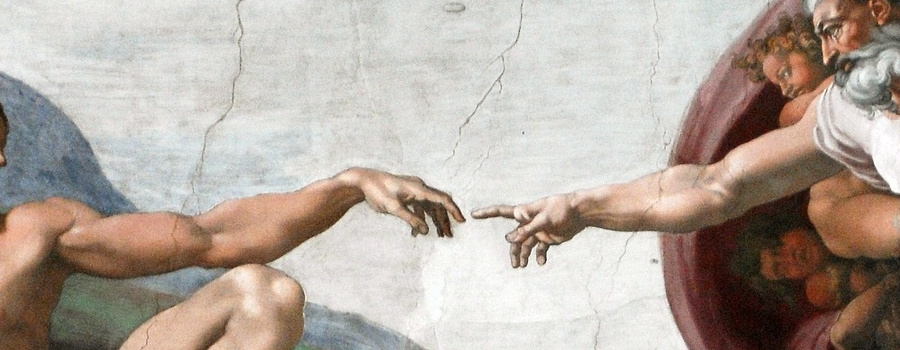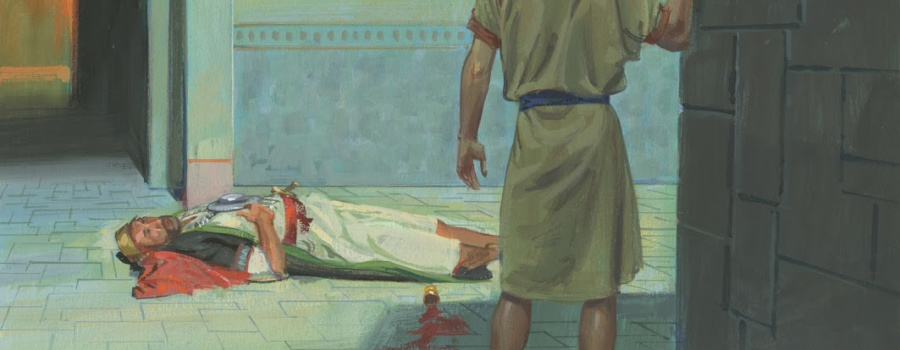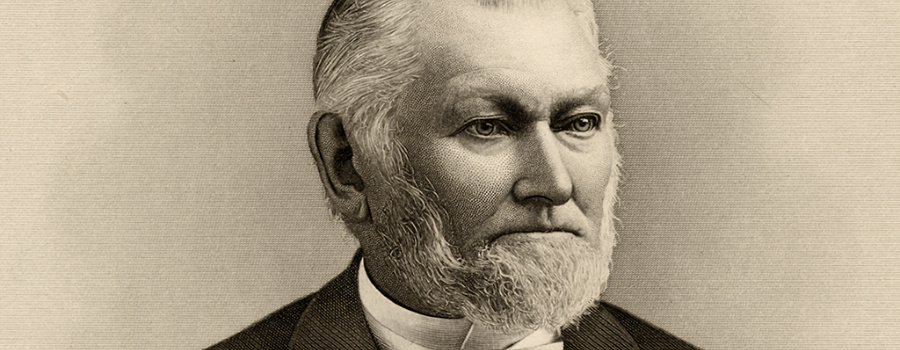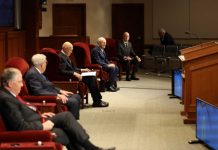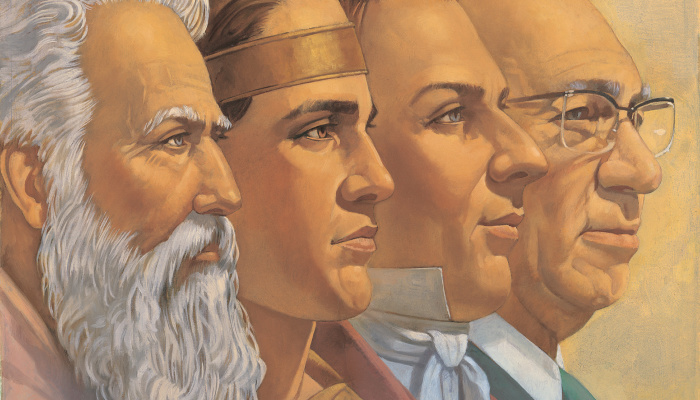
You’ve probably seen the following conversation iterated in countless venues both online and in person. It goes something like this:
Person 1: “I just learned something troubling about (insert name of prophet). Did he really say/do (insert controversial quote/practice/event)?”
Person 2: “It looks like he probably did say/do that thing, but prophets are human, they’re not infallible, they make mistakes. And that’s OK. God forgives them, and so should we.”
To some people, that explanation is comforting. To others, it’s a cop-out—it’s a trite sound-byte used to justify any and all mistakes made by prophets both ancient and modern. And it’s not hard to see where each side is coming from. Yes, prophets make mistakes. But where is the line? Surely there must be one somewhere, right? David was a prophet, until he fell. Solomon was a prophet, and he fell as well. So the question that we really want answered is not, “Do prophets make mistakes?” but rather, “How many mistakes can a prophet make before God calls it quits?” How bad does a prophet have to be—how far off course must a prophet go—before God stops using him? What level of sin causes a prophet to fall?
Unfortunately, this article cannot provide a definitive answer, because there is no definitive answer. That said, there are some exceptionally important principles to keep in mind as you figure out where you stand on this question.
Our judgment versus God’s judgment
The scriptures are replete with warning against unrighteous judgment. Not only is it just not our responsibility to condemn someone, but we often lack the information necessary to truly judge another person. But because God is God, and His thoughts are higher than our thoughts, He is able to see the whole picture.
A prophet’s standing before God deals strictly with the relationship between God and that prophet. That’s a personal relationship we, as outsiders, don’t have access to, and therefore, cannot perfectly judge.
Setting the tone for this entire topic is this quote from Elder M. Russell Ballard:
I feel that judgment for sin is not always as cut-and-dried as some of us seem to think … When he does judge us, I feel he will take all things into consideration: our genetic and chemical makeup, our mental state, our intellectual capacity, the teachings we have received, the traditions of our fathers, our health, and so forth.
When a prophet (or anyone) appears to have made a mistake (whether it was one day ago, one hundred years ago, or one thousand years ago), are you able to judge him based on those same criteria? Are you aware of every cultural, environmental, and biological factor that played a part in that decision? Each and every case is unique.
For example, imagine two people. One lives in Georgia, in 2019. The other lives in Georgia, in 1819. Both of them are racially prejudiced. Will the outcome of God’s judgment concerning this sin be the same in each case? My guess is probably not. God will take our culture and circumstances into account when we are judged.
Now, that’s not to say that the wickedness of one’s culture is a Get-Out-of-Jail-Free card. Whether you’re a Georgia resident in 2019 or 1819, racism is wrong. But judgment requires more nuance than a switch with only two available settings. That’s a hard concept for our dichotomous “Heaven or Hell” society, but right and wrong often exist on a spectrum. While two things may be unequivocally wrong, one man’s adherence to that wrong thing may be more understandable than another man’s.
So, when wondering if a prophet has committed an impeachable sin, remember that you probably don’t have the full story. And making a judgment call on a long-deceased prophet using your modern cultural and moral paradigm is a mistake. It’s called presentism. It’s a logical fallacy that, fortunately, God does not suffer from. But this issue also goes beyond cultural presentism. Making a judgment call on anyone without fully understanding every factor mentioned by Elder Ballard is subject to error or distortion.
Kind David and Solomon
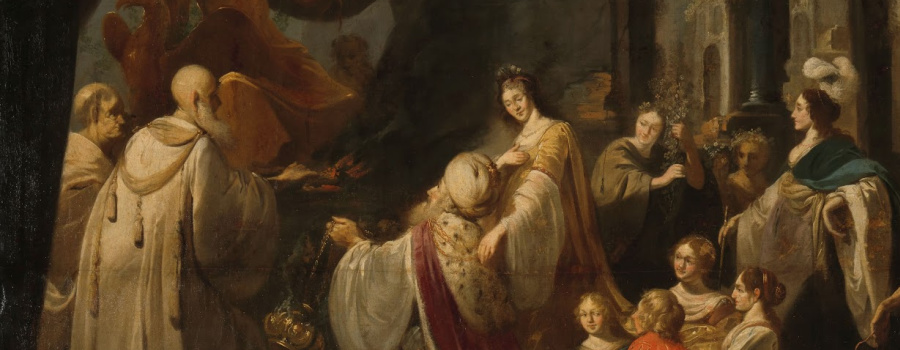
When determining a criterion upon which to judge prophets, some people turn to the case studies of King David and Solomon. It’s easy to say, “Well, David committed adultery and murder and, therefore, became a fallen prophet. Anyone that does something similar must also necessarily fall. He set the bar.”
We try to draw comparisons. “Person X did this, and Solomon/David/etc. did this, therefore we can assume that Person X’s standing before God is this.”
This thought process makes some dangerous assumptions. While the stories of David and Solomon can give us some insight, again, we don’t have all the pieces necessary to make a judgment call on Person X, nor do we have the pieces necessary to fully understand God’s reaction to case studies like Solomon or David. So, our first mistake is that we’re comparing apples to oranges. An ancient Middle Eastern King’s culture, traditions, circumstances, mental state and capacity are sure to be quite different from most anyone in the modern era. And because we can’t possibly fully understand the role those factors play on anyone, we shouldn’t consider the two to be comparable at all.
While many of God’s commandments apply to humanity as a whole, how we chose to obey them will be judged on a very personal, individual level.
Will of God
As complicated as it makes things, sometimes God allows or even commands things that would be absolutely forbidden under different circumstances. For instance, Nephi killing Laban, or Old Testament polygamy.
So, when determining whether a prophet has committed an impeachable sin, one of the questions we must ask is, “Was it really a sin, or could it have been the will of God in that scenario?” It’s an understandably uncomfortable question to ask, but one that obviously has precedent in the scriptures.
Prophetic counsel
You’ve probably heard this quote before from President Wilford Woodruff:
The Lord will never permit me or any other man who stands as President of this Church to lead you astray. It is not in the programme. It is not in the mind of God. If I were to attempt that, the Lord would remove me out of my place, and so He will any other man who attempts to lead the children of men astray from the oracles of God and from their duty.
(Oct. 6, 1890, General Conference)
Of course, this does not mean that prophets are infallible. It simply means that our prophets will never lead us down the same path of general apostasy that the ancient church traveled. But if we have confidence in President Woodruff’s statement, then if a prophet were to ever “fall,” God would have him removed from his position and replaced. That doesn’t necessarily answer the question explored in this article, but it might exonerate you from stressing out too much about it. God will take care of us. He’ll make sure we have the right leaders at the right time.
Intent and desire
When determining whether or not a prophet is worthy of his divine calling, surely God takes intent and the desires of the heart very seriously. These factors come into play before, during, and after the event. And unless you have special insight into these intentions and desires at every stage, your judgment may be skewed.
As an example of post-event intent, imagine a family with three young children. At some point in their childhood, each child managed to find their way into the flour and made quite the mess in the kitchen. But when asked why they made the mess, each child offers a different response.
The first child says, “I made a mess because I’m angry at you and wanted to cause trouble, and you know what? I’d do it again.”
The second child says, “I made a mess because I was angry at you and wanted to cause trouble, but I’m truly sorry. That was wrong of me, and I’ll do my best to clean it up.”
The third child says, “I made a mess because I wanted to make some cookies for you and thought I could do it on my own. Sorry.”
Though all three children unquestionably made a mess, their parents will surely react quite differently to each scenario. The trouble is when you’re the next-door neighbor and all you can see is a mess through the kitchen window, it can be easy to make a snap judgment.
But from the perspective of a parent, where forgiveness is humbly sought, I imagine mercy is often extended. Where forgiveness is eschewed, I imagine the child feels the full weight of justice.
We often reiterate to struggling individuals that there is nothing they can do that situates them out of reach of Christ’s atonement. As long as that individual truly seeks repentance, they can be reconciled to God. If we maintain this attitude towards our peers, wouldn’t the same principle apply to our prophets?
So, how can we know if a prophet has gone too far?
Considering the principles this article has outlined and the challenges they pose, is there a way to know if a prophet is fallen? Ironically, the words of our current prophet, President Russell M. Nelson, shed some light on this question. In September 2019, he taught in a BYU devotional,
You may know for yourself what is true and what is not by learning to discern the whisperings of the Spirit. ‘For the Spirit speaketh the truth and lieth not. . . . It speaketh of things as they really are, and of things as they really will be.’
My dear brothers and sisters, I plead with you to seek earnestly a confirmation from the Spirit that what I have told you is true and is from the Lord. He has declared that we may seek knowledge from heaven and expect to receive it: ‘If thou shalt ask,’ the Lord promised, ‘thou shalt receive revelation upon revelation, knowledge upon knowledge.’
Ask your Heavenly Father if we truly are the Lord’s apostles and prophets. Ask if we have received revelation on this and other matters.
Trying to guess the mind of an omnipotent, omniscient being as a tough task. Thankfully, He’s provided us with another way to know His will. The Holy Ghost gives us fragmentary insight into the mind of God. And because God is the only being capable of taking into account every piece of the puzzle, turning to His wisdom is a great place to start.
But notice that President Nelson doesn’t simply say, “Ask God and boom, you’ll immediately have your answer.” Instead, he emphasizes that one must learn to discern the whisperings of the Spirit. It’s a process, the success of which is predicated on faith, desire, intent, and preparation. As anyone who strives to discern the Spirit knows, it’s not a simple thing to do. But for the answers to some questions, it’s the best thing we can do.


